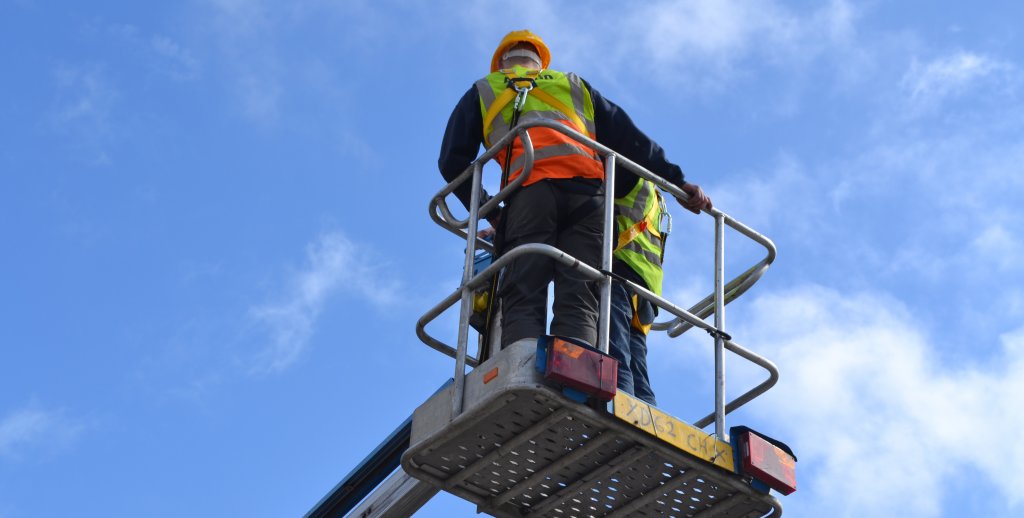It does not take a genius to surmise that working at height comes with its fair share of dangers. In fact, working at height remains one of the biggest causes of fatalities and major injuries in working situations. The most typical scenario of a working at height accident is a fall from a ladder or through fragile surfaces such as glass roofs. If you are unsure whether what you do constitutes working at height, then let’s clarify…To work at height means to work in any place, where should the necessary precautions not be in place, a worker could conceivably fall from such a distance as to cause personal injury.

Thankfully, there are now a number of training options that exist to take care of those who work at height, from bosses through to employees, ensuring that everyone in the company knows what must be done to keep people safe. IPAF was formed in 1983. It functions as a not for profit organisation that represents those involved in powered access. They deliver a wide range of services to those involved in working at height and the one which we are focusing on here is their training program designed to boost safety in such working environments.
IPAF do not hold the training programmes, but rather constantly work to audit them to ensure they comply with their rigorous standards. Every year over 100,000 people across the world undertake IPAF training programmes which can be found running at over 600 specialist centres. Courses include IPAF Operator training, IPAF PAV training and IPAF Safety Harness training.
Over the past 20 years, the number of working at height accidents has seen a significant decline, largely thanks to the proliferation of IPAF training and better education, but also thanks to the widespread introduction and use of MEWPs (mobile elevating work platforms) such as those pictured below.
Even with MEWPs, working at height involves risk and their safe use obviously constitutes part of the modules in IPAF training. The residual risk involves the competence of the operator, planning and supervision and backup emergency rescue plans. The IPAF PAL scheme is the commonest and best-respected training course that addresses such risks.
It is vital when choosing a course that you make sure you’ll receive training that is relevant to the machinery which you will be working with.
When it comes to working at height there is no substitute for confidence. IPAF training programmes are designed to help you feel like you will be safe. That is the first step.
It is important that familiarisation with equipment and procedure take place before work is commenced and last long enough to make sure the operator of MEWPs is confident in using the machine comfortably and safely. The familiarisation in usage of ground controls for designated rescuers is also vital and is often overlooked and has been the crux of many accidents. Those in charge should also ensure the correct tools are on hand for the job, including the right MEWP and be aware of all potential risks. For all these factors, IPAF offers a MEWP for Managers training course.